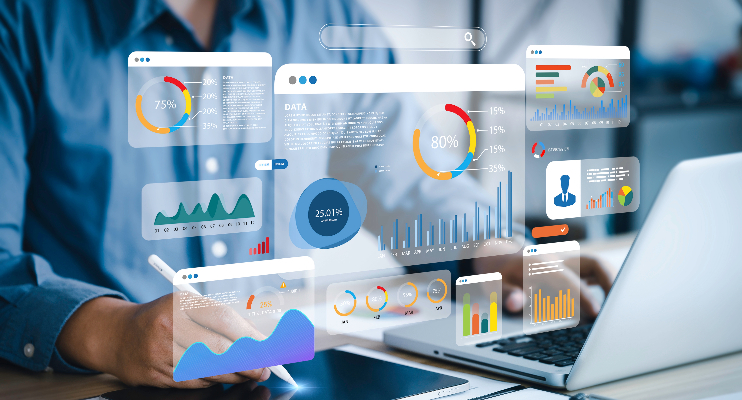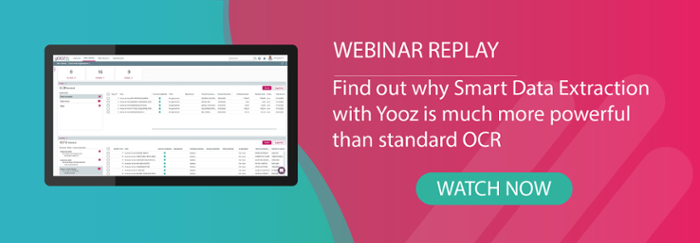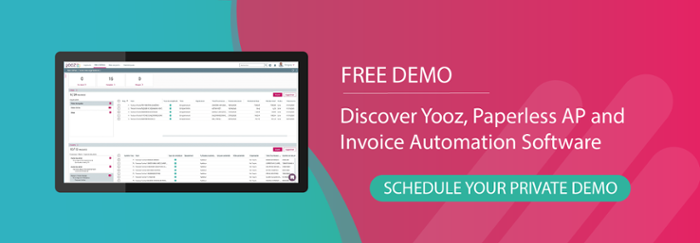In today's fast-paced business landscape every second counts, and inefficiencies can be costly. Considering that manual invoice processing has been found to incur significant expenses - somewhere between $15 (£11) and $40 (£31) per invoice globally - it's clear that finding ways to reduce these financial burdens is of paramount importance for any business.
Our own research published in the State of Automation in Finance 2023 Report revealed a staggering statistic: Accounts Payable (AP) departments spend an average of 26 hours to process vendor invoices. This inefficiency not only affects productivity but also translates to substantial costs.
In addition, according to research by the Aberdeen Group, organisations can cut up to 65% of invoicing costs and reduce processing times by 12 days on average simply through the adoption of automated invoice automation (also known as e-invoicing).
The good news? The benefits don't end there. Invoice automation provides organisations with the ability to swiftly expand their AP and financial teams. By eliminating the need for manual data entry, this technology empowers professionals to focus on other, more critical tasks that ultimately drive business growth.
In this article, we're going to explore through the benefits of automated invoice processing, from substantial cost savings to increased efficiency. In the following sections we'll also guide you through the process of selecting the perfect automated solution for invoice processing tailed to your specific organisational needs.

Why use automated invoice processing?
In the realm of accounting, automated invoice processing stands as a beacon of efficiency, improving everything from purchase orders and supplier invoicing to approvals and accounting.
This digital marvel not only streamlines operations but mitigates several of the challenges found in paper-based systems such as duplicate payments, double handling, late payments, and delayed reimbursements: challenges that double or even triple the level of effort required to process invoices.
Let's take a look at several of the benefits that automated invoice processing brings to accounting teams.
1. Heightened invoice processing efficiency
Automated invoice processing tools go beyond mere digitalisation. They analyse, categorise, and archive invoices based on your established policies and protocols, ensuring seamless accessibility and storage.
These tools will also scour the invoices for the most pertinent information, applying the appropriate tags to ensure information is searchable and stored correctly.
This stands in stark contrast to the cumbersome handling of paper invoices.
2. Unmatched data accuracy
Say goodbye to the perils of manual data entry!
Unlike the manual process of data entry, an automated invoice processing system adheres to stringent, predetermined protocols to extract invoice data from business receipts. These minimise the likelihood of recording the wrong invoice data.
For example, thanks to advanced technologies such as Optical Character Recognition (OCR) and Smart Data Extraction, important invoice data is scanned and converted into a structured, searchable format. The data is then seamlessly integrated into a digital accounting or Enterprise Resource Planning (ERP) system.
3. Substantial cost savings
By embracing invoice processing software, you can drastically reduce the time that it takes to process invoices and liberate your AP team from labour-intensive tasks. This translates into tangible savings, allowing them to redirect their efforts from manually processing invoices towards strategic financial activities including financial forecasts, expenditure reports, future business planning, and purchase strategies.
The idea here is that they move from tedious, menial work to maximising the value that they bring to the organisation.
4. Faster payments, satisfied suppliers
Automated invoice processing ensures that any purchase orders are processed automatically. This is particularly beneficial for organisations dealing with numerous suppliers. Instead of manual approval processes, invoices are received, analysed, and swiftly routed to the appropriate personnel for approval (a simple workflow).
This ensures suppliers are paid early, which is a great position to be in when it comes to renegotiating prices and terms.
5. Enhanced visibility
Centralised systems like ERPs or dedicated invoice processing portals offer comprehensive cataloging of every operation. In addition, most modern systems have preset and customisable workflows, providing a holistic view of the entire invoice process from receipt to approval to archival. This enables more effective financial planning and tracking.

6. Foolproof compliance
In an increasingly regulated world, having a financial payment processing and receipt system is indispensable.
Most modern systems not only ensure adherence to company policies and overall regulations but also furnish detailed audit trails. Every facet of the process, from receipt to status updates and approvals, is meticulously documented, ensuring that you have all the information needed to ensure compliance with financial regulations.
7. Seamless scalability
Seamless integration with an organisation's financial system or ERP transforms an automated invoicing system beyond a simple processing tool, turning it into a comprehensive financial platform.
More sophisticated solutions provide a wide range of capabilities, including financial strategising, tailored workflows, analytical tools, timely approvals, and beyond. These all adapt for your changing requirements.
Ultimately, the scalability of any invoice processing solution is critical.
8. Built-in data analytics
Beyond expediting invoice processing, automated invoice processing software typically is equipped with robust analytics capabilities. These go beyond managing to process invoices faster or improve invoice tracking, providing end-to-end visibility and data insights that support future business and cost strategies. For example, using built-in data analytics, AP professionals can monitor cash flow over specific periods to help understand budgetary requirements.

Choosing your invoice processing automation
Implementing the right software is crucial to optimising your invoice processing and strengthening your Accounts Payable function. To make the most informed platform choice, it's essential to consider several critical factors beyond just business needed, ease of use, and invoice volume and complexity.
These include key factors such as:
- Scalability
Does your chosen solution provide a solid foundation from which to grow? Automatic invoice processing is futile if the system can't keep pace with your expanding operations. Look for a solution that can adapt to your needs, expanding or contracting as required.
P.S. Check out our webinar on how you can transform your accounts payable process to learn more - Integrations
In addition to scalability, seamless integration with your existing AP tools is crucial. This not only aids in scalability but also ensures a smooth transition and continuity of operations. - Functionality
Look beyond basic invoice processing capabilities. Opt for a solution that offers advanced features to enhance and streamline your financial process. Why? Because more sophisticated solutions will help to plug gaps in your financial process through features. - Security and compliance
Given that invoicing tools handle sensitive financial data, prioritise a solution that incorporates enterprise-grade security measures and compliance features. Powerful data encryption, secure data storage, rigorous policy enforcement, and compliance with regulatory standards are all things that should be considered when evaluating each platform.

Take the next step with Yooz
With over 5,000 satisfied customers and 300,000 users worldwide, Yooz stands as the cloud-based Purchase-to-Pay (P2P) automation solution of choice. Leveraging cutting-edge artificial intelligence and RPA technologies, Yooz offers unparalleled automation, simplicity, traceability, and fully customisable features. In addition, the software seamlessly integrates with more than 250 financial systems, exceeding any other solution in the market.
Ready to elevate your Accounts Payable process? Learn more about Yooz now!








